第95章 CHAPTER XXXVIII(1)
THE winter of 1854-55 I spent in Rome. Here I made the acquaintance of Leighton, then six-and-twenty. I saw a good deal of him, as I lived almost entirely amongst the artists, taking lessons myself in water colours of Leitch. Music also brought us into contact. He had a beautiful voice, and used to sing a good deal with Mrs. Sartoris - Adelaide Kemble - whom he greatly admired, and whose portrait is painted under a monk's cowl, in the Cimabue procession.
Calling on him one morning, I found him on his knees buttering and rolling up this great picture, preparatory to sending it to the Academy. I made some remark about its unusual size, saying with a sceptical smile, 'It will take up a lot of room.'
'If they ever hang it,' he replied; 'but there's not much chance of that.'
Seeing that his reputation was yet to win, it certainly seemed a bold venture to make so large a demand for space to begin with. He did not appear the least sanguine. But it was accepted; and Prince Albert bought it before the Exhibition opened.
Gibson also I saw much of. He had executed a large alto-rilievo monument of my mother, which is now in my parish church, and the model of which is on the landing of one of the staircases of the National Gallery. His studio was always an interesting lounge, for he was ever ready to lecture upon antique marbles. To listen to him was like reading the 'Laocoon,' which he evidently had at his fingers' ends. My companion through the winter was Mr. Reginald Cholmondeley, a Cambridge ally, who was studying painting.
He was the uncle of Miss Cholmondeley the well-known authoress, whose mother, by the way, was a first cousin of George Cayley's, and also a great friend of mine.
On my return to England I took up my abode in Dean's Yard, and shared a house there with Mr. Cayley, the Yorkshire member, and his two sons, the eldest a barrister, and my friend George. Here for several years we had exceedingly pleasant gatherings of men more or less distinguished in literature and art. Tennyson was a frequent visitor - coming late, after dinner hours, to smoke his pipe. He varied a good deal, sometimes not saying a word, but quietly listening to our chatter. Thackeray also used to drop in occasionally.
George Cayley and I, with the assistance of his father and others, had started a weekly paper called 'The Realm.' It was professedly a currency paper, and also supported a fiscal policy advocated by Mr. Cayley and some of his parliamentary clique. Coming in one day, and finding us hard at work, Thackeray asked for information. We handed him a copy of the paper. 'Ah,' he exclaimed, with mock solemnity, '"The Rellum," should be printed on vellum.' He too, like Tennyson, was variable. But this depended on whom he found.
In the presence of a stranger he was grave and silent. He would never venture on puerile jokes like this of his 'Rellum' - a frequent playfulness, when at his ease, which contrasted so unexpectedly with his impenetrable exterior.
He was either gauging the unknown person, or feeling that he was being gauged. Monckton Milnes was another. Seeing me correcting some proof sheets, he said, 'Let me give you a piece of advice, my young friend. Write as much as you please, but the less you print the better.'
'For me, or for others?'
'For both.'
George Cayley had a natural gift for, and had acquired considerable skill, in the embossing and working of silver ware. Millais so admired his art that he commissioned him to make a large tea-tray; Millais provided the silver. Round the border of the tray were beautifully modelled sea-shells, cray-fish, crabs, and fish of quaint forms, in high relief.
Millais was so pleased with the work that he afterwards painted, and presented to Cayley, a fine portrait in his best style of Cayley's son, a boy of six or seven years old.
Laurence Oliphant was one of George Cayley's friends.
Attractive as he was in many ways, I had little sympathy with his religious opinions, nor did I comprehend Oliphant's exalted inspirations; I failed to see their practical bearing, and, at that time I am sorry to say, looked upon him as an amiable faddist. A special favourite with both of us was William Stirling of Keir. His great work on the Spanish painters, and his 'Cloister Life of Charles the Fifth,' excited our unbounded admiration, while his BONHOMIE and radiant humour were a delight we were always eager to welcome.
George Cayley and I now entered at Lincoln's Inn. At the end of three years he was duly called to the Bar. I was not; for alas, as usual, something 'turned up,' which drew me in another direction. For a couple of years, however, I 'ate' my terms - not unfrequently with William Harcourt, with whom Cayley had a Yorkshire intimacy even before our Cambridge days.
Old Mr. Cayley, though not the least strait-laced, was a religious man. A Unitarian by birth and conviction, he began and ended the day with family prayers. On Sundays he would always read to us, or make us read to him, a sermon of Channing's, or of Theodore Parker's, or what we all liked better, one of Frederick Robertson's. He was essentially a good man. He had been in Parliament all his life, and was a broad-minded, tolerant, philosophical man-of-the-world. He had a keen sense of humour, and was rather sarcastical; but, for all that, he was sensitively earnest, and conscientious.
I had the warmest affection and respect for him. Such a character exercised no small influence upon our conduct and our opinions, especially as his approval or disapproval of these visibly affected his own happiness.